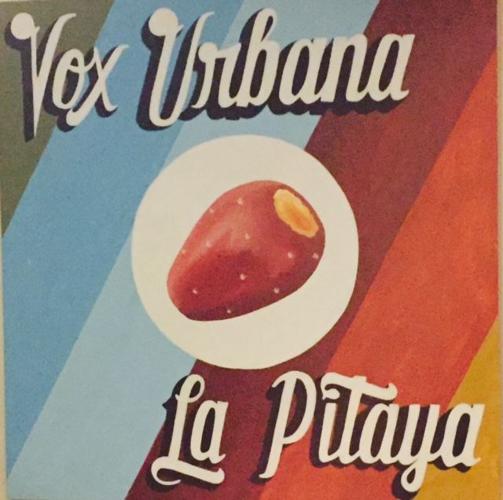In a border region city like ours, two musical forms are often heard in our homes, cars, dances and public places. The corrido and cumbia, which come from two distinct places, are no strangers to longtime desert border dwellers who love to dance.
The older corrido, born along the 2,000-mile U.S.-Mexico border, is a form of storytelling, a musical documentary. The cumbia, a jaunty, infectious rhythm, was born in Colombia but adopted by Mexican-Americans as their favorite party music for weddings and quinceañeras.
Now Vox Urbana, a local 5-year-old cumbia band, has melded the two together to create its Cumbia Corridos project. The group interviewed people about their struggles and put their stories to music.
Next week the band will debut the music at El Casino Ballroom as part of a free public event devoted to storytelling.
The songs, which the group hopes to record, come from people who crossed the border to begin new lives in the United States, said band members James Colby and Enrique “Kiki” Castellanos.
Vox Urbana collaborated with the Southside Worker Center, Mariposas Sin Fronteras and the Florence Project, three community groups that support immigrants, to collect the stories. Vox Urbana received financial support from the Tucson Pima Arts Council and the Puffin Foundation of New Jersey.
The group will present its 10-song project Sunday, Jan. 24, at the popular dance venue in South Tucson, at 437 E. 26th St.
But before Vox Urbana takes the stage at 7 p.m., Arizona Public Media will stage “Dímelo: Stories of the Southwest” at 5 p.m., a storytelling project that will be recorded live and broadcast Jan. 29 on the weekly radio program “Arizona Spotlight,” hosted by Mark McLemore.
Sophia Paliza-Carre, an independent radio producer, said Dímelo is aimed at people with rich Tucson stories. Every two weeks, questions will be posed to prompt listeners to submit their stories, which will be curated and aired on the Friday program. From the stories, she hopes to develop longer feature stories.
Dímelo, which is funded by the Corporation for Public Broadcasting and produced by the Association of Independents in Radio, is expected to run through July, but Paliza-Carre hopes that additional money will be found to keep the program on air longer.
Both Vox Urbana and Dímelo, which in English translates as “tell me,” are efforts to capture and document people’s stories that otherwise would not be told. They are part of an oral history tradition that long predates modern media.
In their interviews with immigrants, the members of Vox Urbana heard heart-wrenching stories, which often accompany immigrants who trek across the desert. But in the harsh stories, Vox Urbana found uplifting messages of hope and perseverance.
One song is about Carolina, a transgender woman from Acapulco, Mexico, who tries to find her place in Mexico City and later in Phoenix.
Castellanos, who grew up on both sides of Nogales, said Carolina’s story is important to share.
Another song is about Pablo from Honduras, who rode the notorious “La Bestia,” the Beast, the train that travels north from Mexico’s southern border with Guatemala carrying Central Americans. It is a treacherous way to travel. The train hoppers encounter gangs and corrupt Mexican police who rob them, or they fall off, losing limbs and life.
Pablo, along with his two brothers, survived the ride on La Bestia, but when they crossed the desert, his brothers perished. Pablo now lives in Houston, said Colby, a native of New York state.
Wesley Creigh, an artist who lives with Colby in Barrio Santa Rosa, has observed Vox Urbana evolve with the stories and the music. She said the band has taken on a responsibility to respect the individuals interviewed for the project.
“The stories are of intense struggles but the band has found beauty in their stories,” she said. “It’s an interesting line to walk and a bridge to cross,” she said.
The Cumbia Corridos project originated more than a year ago.
The members of the band are: Castellanos, on guitars and vocals, Colby on saxophone and keyboard, Saul Millan on trombone and vocals, Jeff Grubic on baritone sax and percussion, David Perez on congas and vocals, Casey Hadland on drums and Joaquin Zamudio on bass.





